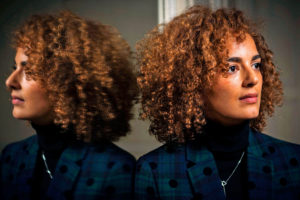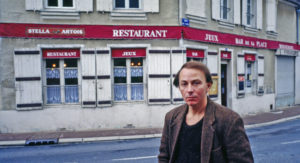“Where do you get your ideas from?” In the days when I wrote for children, I went into schools to talk to them, and this was a stock question. In replying, I used initially to say, “well, quite a lot of my ideas come from books”, an answer that would sometimes provoke the stern response, “but shouldn’t you think of things for yourself?”
I know just what the child was thinking — she had plagiarism in mind, not yet being aware of the formative, the directive effect of reading. She would be doing it — reading — but did not yet know what it was doing to her. It is hard to explain to a child the way in which fiction arrives, for anyone who tries to write it, out of a personal and specific system of thought that has been primed by all sorts of things — life experience, opinion, outlook, and by the life of the mind, by reading.
Books beget books. Intertextuality, the critics like to call it. I am at the end of a writing life; I just read now. So, the process whereby reading so often became writing is over, for me. It has been an almost unconscious process, from childhood on: I have read for enjoyment, for instruction, for education — but most of all in the serendipitous way that has supplied the essential prompts for 50 years of writing fiction.
It all began in Egypt, where I was born and spent my childhood, most of that during the Second World War. Home educated, my favourite reading matter was Andrew Lang’s Tales from Greece and Rome, the 19th-century retelling of the great mythologies. Part of the fascination was that I was right in there anyway — Penelope — and at eight or nine your grasp of the distinction between fact and fiction is somewhat frail. I simply felt that all this had some direct personal relevance — the siege of Troy, the wanderings of Ulysses, the lot.
The trouble was that I was in there with the wrong role. It is made clear that Penelope is not as beautiful as Helen. She is wise and good — qualities that did not have much appeal. Furthermore, Ulysses is not a patch on Hector or Achilles — he is short in stature and is perceived as unreliable. So, I did some expedient re-jigging of Andrew Lang — re-wrote Penelope’s part and brought things more up to date. The backdrop of our lives in Egypt at the time was the Libyan campaign, with Rommel’s armies pounding their way towards Cairo, and columns of tanks and armoured cars a familiar sight on the roads. So, I set Penelope up with Achilles, and kitted him out with tank and bren gun — no more stuff about swords and horses.
I couldn’t know, of course, that I was operating in a fine tradition — re-working the Homeric stories has gone on for centuries. But for me it was the start; what I read began to direct the imagination. And that has gone on ever since, more often opportune than deliberate, a book I stumble across serving up the idea that will take wings and become the basis of a novel.
Not every reader feels impelled to write, but some do, as though the reading had been some involuntary training for something. I am a great fan of Elizabeth Bowen, who offers a perfect example of one piece of fiction leaving its mark upon another. She has a wonderfully atmospheric story called “Mysterious Kor”, in which a pair of lovers wander the deserted streets of night-time London in 1942. Her descriptions of the moonlit facades of blitzed buildings, the sense of emptiness, abandonment, reads as though there were undertones of something else — and she herself wrote later that she had realised that this was owed to the memory of reading, as a child, Rider Haggard’s novel She, with its mysterious abandoned city.
These influences are made apparent in Alberto Manguel’s lovely book The Library at Night, which is all about reading, what it does to you, what it has done to him. He says: “Every library is autobiographical… our books will bear witness for or against us, our books reflect who we are and where we have been… What makes a library a reflection of its owner is not merely the choice of titles themselves, but the mesh of associations implied in the choice.” A great library — a great national library — is a metaphor for memory. But so, in its small way, is the collection of books in anyone’s house. They tell you where the owner has been, what the collecting mind has been up to.
I have written 17 novels, very many short stories, several rather maverick forms of memoir, and that is that — I am done. If I look along my own shelves, I see their origins. My library reveals an intense concentration on history and archaeology: this has been my favoured reading territory, for 50 years or more. So, it is no accident that several of my novels have featured historians or archaeologists as central characters. Within this area of interest are individual books from which the lightning struck: if I had not read a biography of William Stukeley, the 18th-century antiquarian who mapped Stonehenge, I might never have written a novel about archaeologists (and much else) called Treasures of Time. Picking up a booklet about Martin Frobisher, the Elizabethan seaman, gave me the backdrop for a London novel, City of the Mind. I owe to Stephen Jay Gould’s book Wonderful Life, about the Cambrian fossils of a rock face in Canada, the sudden explosion of an idea for a novel about choice and contingency — and a love story — Cleopatra’s Sister.
Here is the answer to the child’s question. Ideas come from books — not in any sense of derivation, but entirely in the sense of fertilisation. Something is read that slots in with long-term preoccupations and sets a story going. The account of that gentleman pottering around Stonehenge with his charts and his measuring ropes; the concept of those strange fossils preserved in the Burgess Shale deposits, one of which is ancestral to ourselves.
About 3,000 books line the walls of my house. Most of them I shall never read again, but they must stay there. They define me; they remind me that I thought this, was interested in that; they reassure me, as I hurtle towards 90. Occasionally I shed a few books, but to get rid of many of them would be like discarding part of my mind.
Old age is strange and unexpected territory. I say unexpected because most of us don’t much think about old age until we find ourselves in it. When you are young, it is never going to happen, so why bother? When it begins to appear on the horizon, like a foretaste of bad weather, you look away and get on with something else, which is entirely sensible. Only when you find yourself in it do you appreciate what a new and different life situation it is. A number of years ago, I enjoyed writing a book about my view from 80, Ammonites and Leaping Fish. I was putting my own life into context, setting it against the historical process during which I had lived — the Second World War, the Cold War years, feminism, the legalisation of homosexuality.
I can see that novels of mine written in later life — Consequences, How It All Began — are more reflective about the course of a life, which is a marriage, for anyone, of choice and contingency. These thoughts were prompted both by my own experience of getting older, and an interest in the ideas behind chaos theory, the scientific discussion of the way in which one event triggers another: a butterfly in Brazil flaps its wings and provokes a typhoon in Texas. The science is hard to follow but the implication is fodder for a novelist — in anyone’s life there is an apparently random sequence of events.
This is something you appreciate fully in later life. My late life reading is focussed upon enjoyment and enlightenment, though I know that the lifelong habit of pouncing on something just because it looks promising is still operative, even if the something is no longer going to be the possible prompt for a novel or a story. I seem to have come full cycle — back to the reading addiction of my childhood, with the writing years as a legacy in the middle. There has been a re-read of Shirley Hazzard’s The Transit of Venus — goodness, what a stylist, what arresting felicities, what a power to evoke a place, a person, a moment. I have been enjoying our contemporary women novelists — anything by Louise Doughty, Sarah Moss, Carys Davies — and anything by Adam Thorpe, John Lanchester, Ian McEwen. I have revelled in Katherine Rundell’s biography of John Donne, a glittering instance of life writing, intense and evocative.
And there is the way in which this is visible, with what has been written reflecting what is on the bookshelves — the archaeologists and historians who pop up in novels or stories, the themes explored in fiction prompted by subject matter on the shelves. Books beget books.
Disclaimer
Some of the posts we share are controversial and we do not necessarily agree with them in the whole extend. Sometimes we agree with the content or part of it but we do not agree with the narration or language. Nevertheless we find them somehow interesting, valuable and/or informative or we share them, because we strongly believe in freedom of speech, free press and journalism. We strongly encourage you to have a critical approach to all the content, do your own research and analysis to build your own opinion.
We would be glad to have your feedback.
Source: UnHerd Read the original article here: https://unherd.com/




